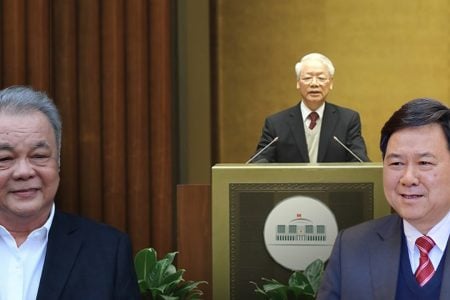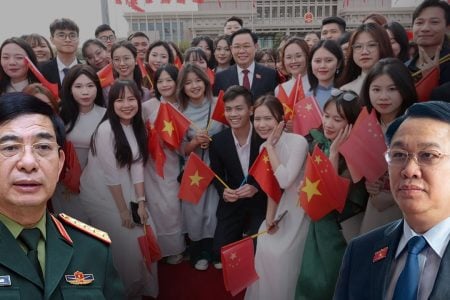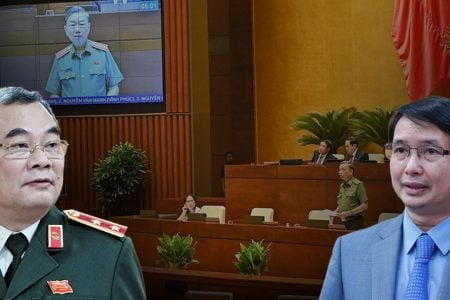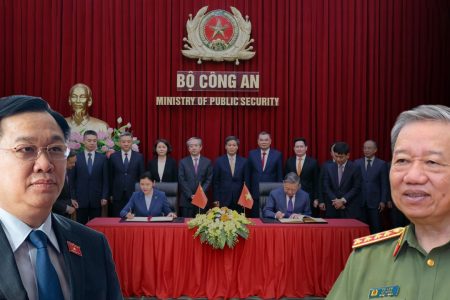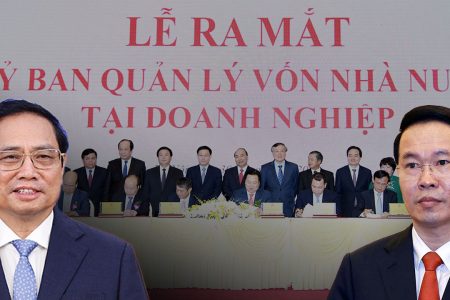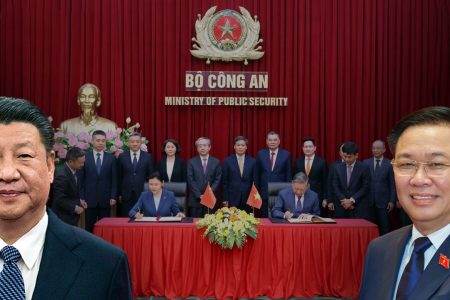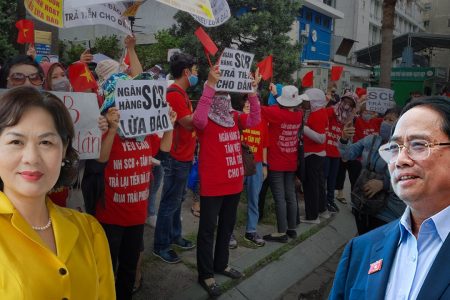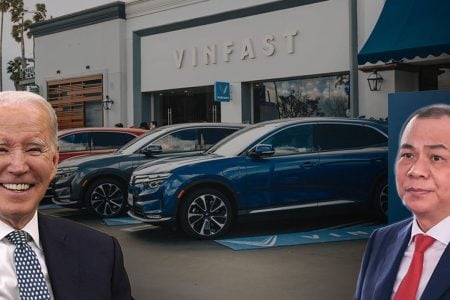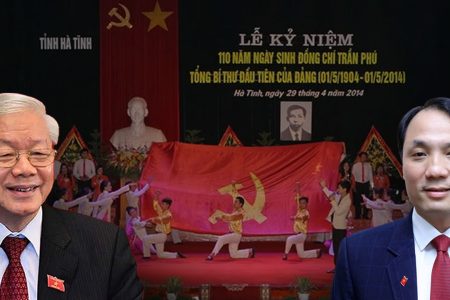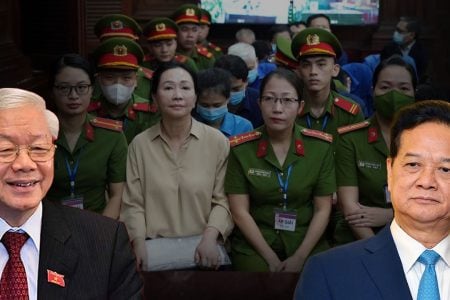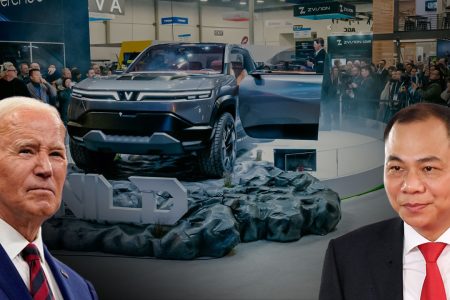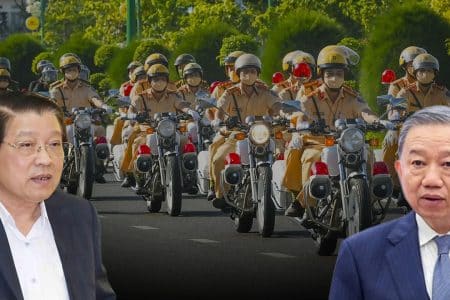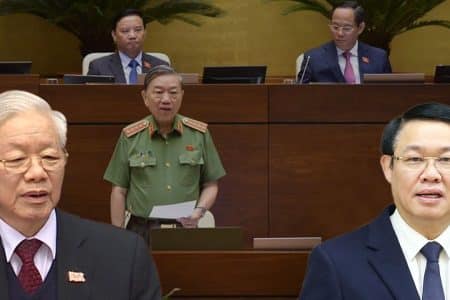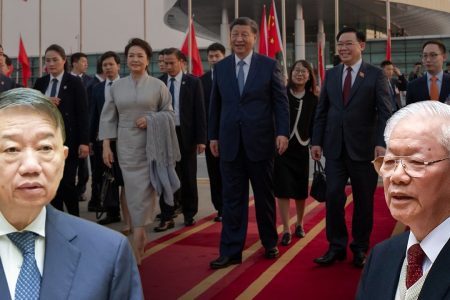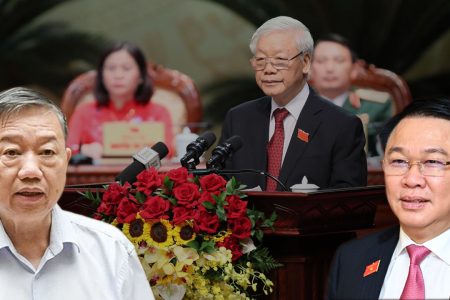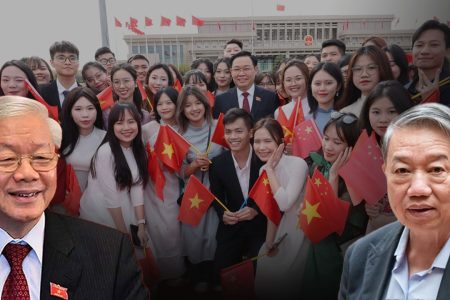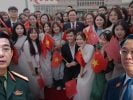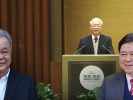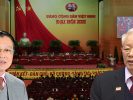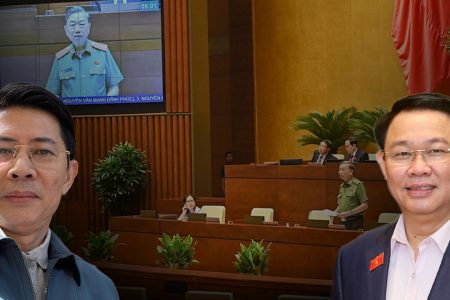
The Vietnamese state-controlled press in recent days has widely reported on Prime Minister Pham Minh Chinh’s trip to the US. Official newspapers tried to promote Mr. Chinh’s visit to the US.
It is remarkable how Vietnamese newspapers reported Mr. Chinh’s visit as if it was a bilateral visit between Vietnam and the US. Even the Voice of Vietnam (VOV) online newspaper initially published an article with the title “Prime Minister conducts a bilateral meeting with President Biden,” but soon had to change it to a different title.
Chinh’s visit to the US is in service of the ASEAN-US Summit on May 12-13. This is also Chinh’s first visit to the US as the government leader. Before Mr. Chinh’s trip, there were also some speculations that during this period, Vietnam and the US will upgrade bilateral relations.
However, on the agenda of this summit, there are no bilateral meetings, and Vietnam-US relations have yet to have any new breakthroughs.
Who lacks sincerity?
In his speech at the Center for Strategic and International Studies (CSIS), he said: “Sincerity, trust, and responsibility play a particularly important role in solving the problems that arise in the future. It is the lack of sincerity, trust, and responsibility that causes tension and conflict in many areas. Lack of sincerity and trust is a serious obstacle to bilateral cooperation between countries as well as cooperation to deal with regional and global challenges.”
In an article in Foreign Policy, Brian Eyler – Program Manager of the Mekong Dam Monitor wrote: “Relationship upgrade can and should happen at the right time. In fact, the current cooperation relationship in the fields of maritime security shows that the US-Vietnam relationship is actually a strategic relationship. However, rushing to upgrade relations during Prime Minister Pham Minh Chinh’s visit could backfire.”
Brian Eyler’s explanation is similar to that of some Vietnamese officials and scholars who always think that Vietnam needs substance rather than title.
Author Khang Vu writing in The Diplomat said there is a significant “inequality” in the relationship between the two countries, when although the US is a superpower, Vietnam, although a rising country, is still having political limitations many US officials actively consider Vietnam as a “battleground” in the Indo-Pacific region. The US side also earnestly proposed to upgrade bilateral relations to a new height. During the visit of Vice President Harris to Hanoi last year, as well as the unconcealed view of the US Ambassador to Hanoi Knapper in his first press conference in this position, both wanted Vietnam to become a “comprehensive strategic partner” of the United States. “However, Vietnam’s responses to the US proposal have been lackluster. While welcoming the US approach, Vietnam did not agree to upgrade the relationship to a strategic partnership. Harris failed to persuade Vietnam to change its mind during her visit. Newly appointed Vietnamese Ambassador to the US Nguyen Quoc Dung also does not consider consolidating a ‘strategic partnership’ as a goal during his term. Some Vietnamese officials have described the partnership as a strategic relationship in all respects, except for the name, and officially, the US is not one of 17 strategic partners of Vietnam, behind Australia, Japan, and India, three other countries in the Security Dialogue Quartet.”
Author Khang Vu also added: “The US is the party that has made concessions to Vietnam on major issues in order to improve the overall bilateral relationship, including breaking diplomatic protocol to receive the General Secretary Nguyen Phu Trong at the White House in 2015 and kept quiet as Vietnam continued to buy weapons from Russia, which was contrary to the Countering America’s Adversaries Through Sanctions Act. It is worth noting that the US has sanctioned its treaty ally Turkey for purchasing the Russian S-400 missile system. In short, Vietnam seems to be holding a trump card in the bilateral relationship even though the US has much greater power.”
Another Vietnamese author, Dien Luong, explains that there are conservatives and progressives in Vietnamese politics. “Conservatives have slandered the threat of a ‘peaceful evolution,’ alluding to US support for pro-democracy dissidents and upholding human rights values to sabotage or even overthrow the Communist Party of Vietnam, to sow doubt about closer ties with Washington.
That distrust has spread the thinking of Vietnam hardliners to the point where they can negotiate difficultly and derail progress on a bilateral US-Vietnam trade agreement until 2000.” In the opinion of author Dien Luong, “The US needs to try harder to win the hearts of conservatives in Vietnam.”

Thus, the “sincerity” of Mr. Pham Minh Chinh’s statement seems to be just a “cliché” message.
Words contradict actions
Mr. Chinh also eloquently stated that:
“Secondly, between independence and dependence, we always choose independence with the spirit of ‘Nothing is more precious than independence and freedom’ of late President Ho Chi Minh; between negotiation and confrontation, we choose to negotiate; between dialogue and conflict, we choose dialogue; between peace and war, we choose peace; between cooperation and competition, we choose cooperation and if we compete, the competition must be healthy, equal, respect each other’s legitimate and legitimate rights and interests.”
Most people think that Vietnam’s avoidance of upgrading relations with the US is due to fear that provoking China will increase the threat to Vietnam. However, this is only part of the problem. Countries in Southeast Asia also maintain good relations with both the US and China without any problems, Singapore is a typical example.
People remember Mrs. Harris’s visit to Vietnam, the road is a Vice President of a superpower but the head of the Communist Party of Vietnam (actually the real head of state in Vietnam is Mr. Nguyen Phu Trong) avoided welcoming Ms. Harris, while before Ms. Harris arrived in Vietnam, Mr. Pham Minh Chinh took the initiative to meet the Chinese Ambassador to Hanoi to “report the visit.”
It is because of Vietnam’s behavior that led to President Nguyen Xuan Phuc’s visit to the United Nations headquarters last year, informed sources said, that the Vietnamese side made efforts to find a bilateral meeting between the two heads of state between Vietnam and the US, but the US side coldly refused with the excuse of “precautionary for COVID-19.”
Mr. Pham Minh Chinh also affirmed: “In a world full of turbulence, strategic competition, and many choices, Vietnam does not choose a side but chooses justice, fairness, justice, and righteousness on the basis of principles of international law, the Charter of the United Nations; equality, all benefits, win-win.”
However, so far, Vietnam has refused to condemn Russia’s attack on Ukraine. Vietnam has abstained from all UN votes on this issue and will most likely not support sanctions against Moscow. Vietnam also voted against suspending Russia at the UN Human Rights Council, although Vietnamese statements imply that Russia’s attack on Ukraine is a violation of the UN Charter and international law.
Vietnam’s recent behavior shows that its foreign policy seems to be trying to “make the most of” economic benefits from the US while continuing to maintain and preserve traditional relations with Russia and China.
Vietnam is always proud to think that its foreign policy is consistent and has been planned for a long time, which shows that it is not quite what the author Dien Luong thinks when he thinks that there are radicals and conservatives among the senior leaders of Vietnam. It should be said that the entire Politburo of Vietnam has the same view on relations with the US, China, and Russia. Therefore, the development of Vietnam – US relations in the future will hardly have a breakthrough. Although progress has been made, it is extremely slow. And sometimes, as a Western proverb reminds us, “Whoever is late will miss the train.”
Thoibao.de (Translated)




